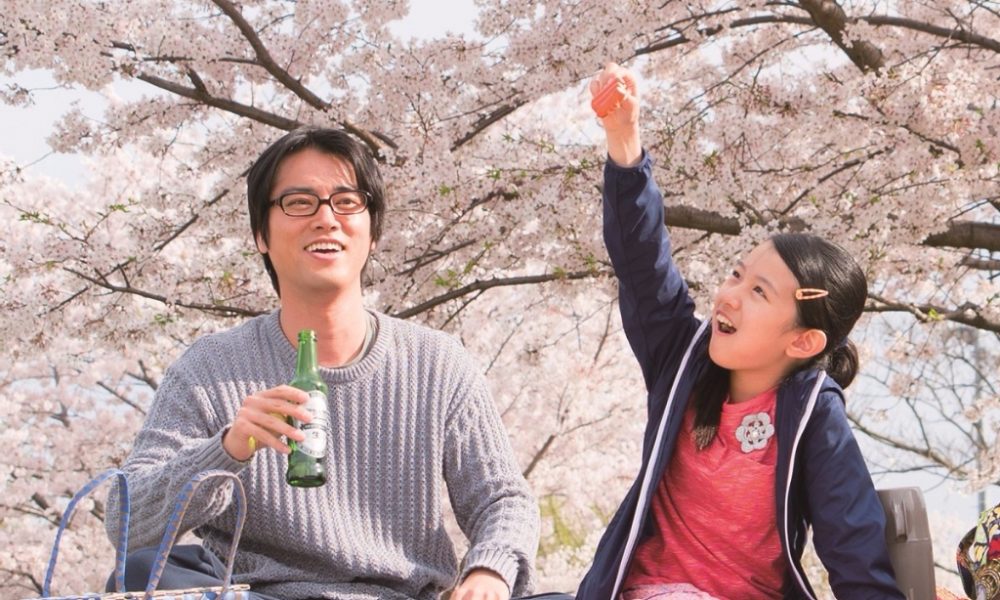Karera ga Honki de Amu toki wa (Close-Knit)

The international premiere of Naoko Ogigami’s magestic film Karera ga Honki de Amu toki wa (Close-Knit) in the Panorama Special section of Berlinale 2017 garnered applause throughout the course of the credits, and then for an additional two minutes once the lights were up. Close-Knit centres around the life of 11-year-old Tomo (Rinka Kakihara) who lives a neglected existence with her wild mother, who leaves her in a filthy apartment with store-bought onigiri rice balls as sustenance. Once her mother takes off without warning, Tomo seeks out her uncle, Makio (Kento Kiritani), who warns her that Rinko (Tôma Ikuta), the woman in his life, is “unusual.” At first, Tomo is wary of Rinko, Makio’s transsexual partner, but after Rinko cares for her in such a tender way, the little girl’s defences drop and she forms a tight bond with her new mother figure.
Even though the subject of transsexuals in Japan would normally be taboo, Ogigami’s strong script brings a levity to a topic that in recent years has been dealt with in more (overly) serious ways. The first scene with Tomo and her uncle is a great example of simple, realistic dialogue, revealing their history without being too wordy. The exquisite camerawork, lingering shots on empty frames, interesting angles and still images where the actors so effortlessly move in and out of frame, is delicate and gentle, and a bike scene of the three riding among the cherry blossoms is gorgeous. One can sense that the actors were given freedom to act, rather than chopping up their performances with cut after cut, and that the director truly trusts her actors, and vice versa. This is storytelling at its best.
There are so many genuine and humorous scenes where the audience will laugh out loud. While the imagery of breasts and penises shown in knit form may seem childish or kitschy to some, one must remember that this story is about Japanese culture, viewed through the lens of young Tomo’s world. This isn’t to say that Close-Knit doesn’t touch upon darker topics; the storyline of Tomo’s classmate hits a nerve, dealing with a serious issue currently in Japanese society. This young boy’s overbearing and judgemental mother is the epitome of misguided and heavy-handed love.
The casting of a transgender actor in the role of Rinko would have been interesting to see – one wonders if that was ever brought up in casting – and the two child actors are an impressive casting choice. The playful score, with sounds of the xylophone and piano, are lovely and enhance the film’s atmosphere so well. On a few occasions, the louder moments of the piano score feel a little sentimental and might have benefitted from a more toned-down approach.
One of Berlinale 2017’s triumphs, it wouldn’t be a surprise if Ogigami’s Close-Knit won a prize in the Panorama Special (also part of Generation 14plus section) this year. Let’s hope for wide distribution for the film in the future, both domestically and internationally, because this movie is one that shouldn’t be missed.
Lindsay Bellinger
Karera ga Honki de Amu toki wa (Close-Knit) does not have a UK release date yet.
Read our interview with the director, Naoko Ogigami, here.
For further information about the 67th Berlin Film Festival visit here.
Read more reviews from the festival here.
Watch the trailer for Karera ga Honki de Amu toki wa (Close-Knit) here:






















Facebook
Twitter
Instagram
YouTube
RSS